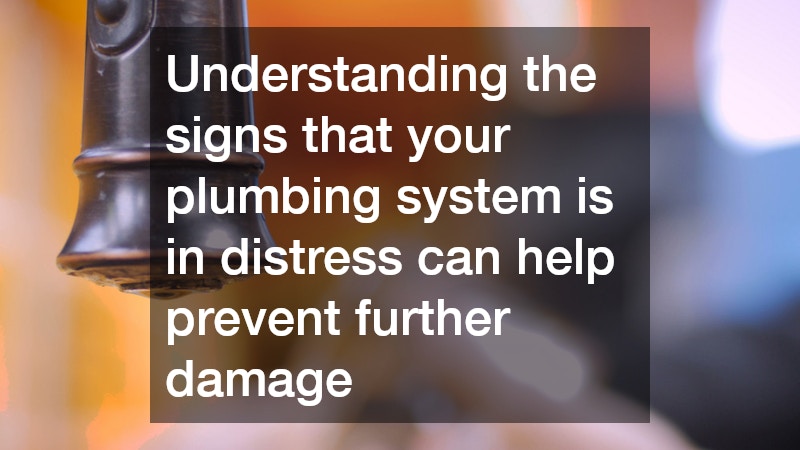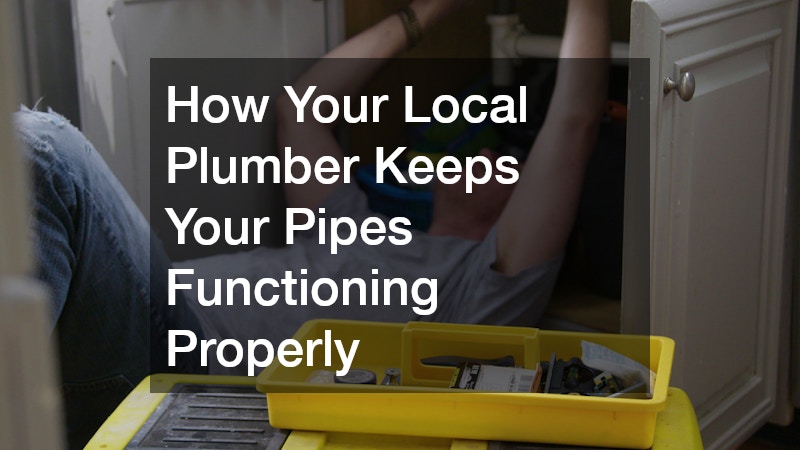Your local plumber plays a vital role in ensuring that your home’s plumbing system operates smoothly and efficiently. In this article, we will address common questions about the invaluable services they provide and how they help maintain your pipes. Many homeowners underestimate the importance of professional plumbing services until they face a crisis.
Understanding the various functions and services provided by plumbers can save you from unexpected repairs and costly damage.
Plumbing problems can arise unexpectedly, leading to inconvenience and sometimes even health hazards. Having a reliable plumber on speed dial means peace of mind, allowing you to focus on other aspects of home maintenance. Moreover, recognizing potential plumbing issues early can mitigate risks and preserve the integrity of your home’s plumbing system.
From minor irritations like leaky faucets to major complications like blocked sewer lines, plumbers are trained to handle all levels of plumbing challenges. Their expertise ensures that your plumbing system runs smoothly, safeguarding your home from water damage and related issues. Let’s explore the essential signs that indicate you may need to call a plumber for assistance.
Common Signs You Need a Plumber
Understanding the signs that your plumbing system is in distress can help prevent further damage. One of the most noticeable signs is persistent leaks, whether from pipes, faucets, or toilets. Leaks can significantly increase water bills and cause structural damage to your home over time if not addressed promptly.
Another indicator is low water pressure, which may suggest a blockage or a leak in the plumbing system. If you notice that your faucets are producing a weak stream of water, it is crucial to consult with a plumber to identify the underlying issue. Ignoring low water pressure can lead to more significant plumbing problems, affecting the comfort and functionality of your household.
Slow drainage in sinks, bathtubs, or showers can also signal the need for professional assistance. If you find that water is pooling around fixtures and taking longer than usual to drain, it could indicate a blockage in the drainage system. Addressing drainage issues early can prevent potential backups that could lead to even greater plumbing complications.
How a Plumber Diagnoses Problems
Learn about the techniques and tools plumbers use to identify issues within your pipes. Plumbers often begin the diagnostic process with a thorough visual inspection of your plumbing system, looking for signs of leaks, corrosion, or damage. This step is crucial in identifying visible problems and determining necessary repairs.
Advanced tools such as drain cameras allow plumbers to inspect the interior of pipes without invasive methods. These cameras provide real-time video footage, revealing clogs, cracks, or other issues that may be causing problems. With this technology, plumbers can pinpoint trouble areas more accurately and design effective solutions tailored to the specific problem.
Pressure testing is another common diagnostic technique used by professionals. By measuring the pressure within the pipes, plumbers can determine if there are leaks or weaknesses that could lead to future problems. This systematic approach not only speeds up the diagnosis process but also enhances the reliability of the solutions put in place.
Routine Maintenance a Plumber Can Provide
Discover the importance of regular maintenance and the type of services offered by local plumbers. Routine maintenance includes inspecting the entire plumbing system for signs of wear and tear. By regularly checking pipes, valves, and fixtures, plumbers can address minor issues before they escalate into larger and more expensive repairs.
Additionally, plumbers can perform tasks like drain cleaning to prevent buildup and blockages. Regularly scheduled drain cleaning helps to maintain clear waterways, ensuring that your plumbing system functions efficiently. Plumbers may also check water quality, ensuring that you and your family are consuming clean and safe water.
Another vital aspect of maintenance is the inspection of water heaters and other essential appliances. Over time, sediment can build up in water heaters, affecting efficiency and increasing energy costs. Regular maintenance from a qualified plumber can extend the lifespan of your appliances and enhance their performance, making it a wise investment for homeowners.
Typical Plumbing Repairs
Explore the most frequent plumbing repairs that professionals undertake to keep your pipes functioning properly. One of the top repairs is fixing leaking faucets and toilets, which can waste a significant amount of water if neglected. A skilled plumber can identify the source of the leak and replace worn washers, seals, or even the entire fixture if necessary.
Pipe repairs are also common, especially in older homes where corrosion may lead to leaks or bursts. Plumbers utilize various methods, such as pipe relining or replacement, to ensure that your plumbing system is secure and leak-free. Proper pipe repair maintains water flow and prevents costly water damage to your property.
In addition, clogged drains are a prevalent issue that requires prompt attention. Professional plumbers use specialized tools and techniques to remove blockages effectively, restoring proper drainage. Addressing clogs promptly helps to maintain a healthy plumbing system and reduces the risk of backups and overflows.
Preventive Care for Plumbing
Find out proactive measures you can take to minimize the risk of plumbing problems in your home. Regularly checking for leaks and addressing them immediately is crucial in preventing more extensive damage. You can visually inspect areas under sinks, around toilets, and along exposed pipes for signs of moisture or mold.
Another preventive measure is being mindful of what goes down your drains. Avoiding the disposal of grease, hair, and large food particles can significantly reduce the risk of clogs. Installing drain guards can help ensure that only appropriate materials enter your plumbing system, keeping it clear and functional.
Finally, scheduling regular professional inspections and maintenance can catch potential issues early on. A local plumber can provide comprehensive checks that identify warning signs before they turn into significant problems. Staying proactive with your plumbing care can save you time and money in the long run.
By understanding the essential role of your local plumber and the common plumbing issues they address, you can better appreciate their expertise and the importance of regular maintenance. A functioning plumbing system is crucial for your home’s comfort and safety. Recognizing the benefits of professional plumbing services empowers you to take proactive steps in maintaining your home’s plumbing health.
Investing in routine maintenance and timely repairs not only preserves your plumbing system but also enhances your overall quality of life. A well-maintained plumbing system contributes to peace of mind, knowing that your home is protected from potential water damage. In conclusion, by fostering a good relationship with your local plumber, you ensure that your plumbing needs are met promptly and effectively.





